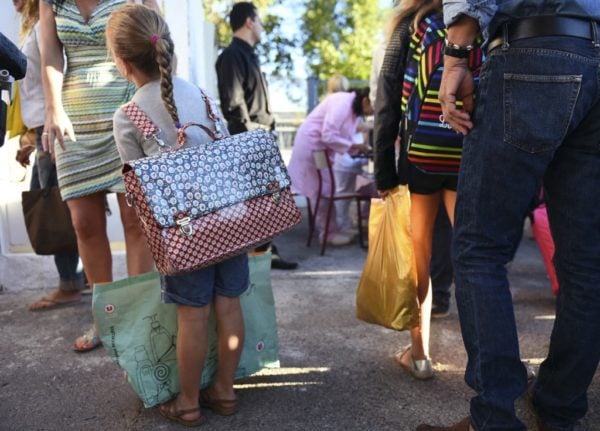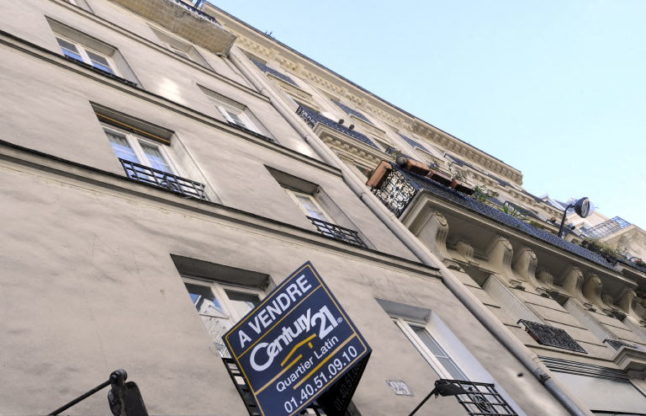There are several international schools in the Paris area and one of the best known is the American School of Paris (ASP) – not to be confused with the similarly named American University of Paris (or the American Library in Paris or the American Church in Paris, if it comes to that).
ASP is home to around 800 students, with an average of 18 students per class. It offers grades K3 (pre-school, aged 3) to upper school (high school, grade 12).
The school is located slightly outside of the city to the west, in Saint-Cloud, but there is a private bus service available with fixed routes covering some of the Paris suburbs and the 7th, 8th and 16th arrondissements.
In terms of the academic calendar, the year is similar to the French school year though seasonal breaks (autumn and spring) are shorter, making it possible to have a longer summer vacation.
READ ALSO: What kind of school in France is best for my kids?
What’s the curriculum?
ASP says on its website that it “not only offers an American high school diploma, but also an IB bilingual diploma, AP classes, a myriad of electives and international opportunities, American-style athletics, hands-on STEM classes, [and] outdoor learning.”
The coursework is listed for each age level HERE, and secondary school parents can consult the detailed curriculum themselves HERE.
While English is the main language of instruction, students receive French courses at all age levels.
Students usually aim to take the American high school diploma, and have the option to take the international baccalaureat. They are not routinely prepared for the French baccalaureat (le bac).
What are the tuition fees?
The tuition fees depend on age.
Here are the fees for the 2024-2025 school year;
- €21,270 per year for K3 (pre-school, age 3)
- €28,650 for K4 (pre-school, age 4)
- €34,020 for K5-Grade 5 (Elementary school)
- €39,235 for Grades 6-8 (Middle School)
- €39,910 for Upper secondary (high school)
You must also apply to enrol your child, and the application fee is a non-refundable €1,450. There are additional fees depending on your child’s age and situation, including the bus fee, building upkeep (capital assessment) fee, security fee and learning support fee.
Financial assistance is only available to current ASP families who need “temporary tuition and fee support.”
READ MORE: Just how much do private schools in France cost?
Does my kid need to be American?
No, the ASP accepts students of all nationalities – around one third of their students are American. They also offer an English as an Additional Language Program.
What about extra-curriculars?
There are several different extra-curricular activities available, from art to clubs and athletics.
High school aged kids can play different sports at junior varsity and varsity levels, competing against other international schools in Europe. More info here.
How do I apply?
You apply online here. The school doesn’t practice academic selection (ie an entrance exam) but is often over-subscribed so acceptance is not automatic.
According to their website, the American School of Paris accepts applications on a rolling basis, but most grades have wait lists. Before applying, they recommend contacting the Admissions Office.
You can also schedule a virtual or in-person tour.
What if my child has special needs?
ASP has a learning support programme for children with mild to moderate learning differences.
Students enrolled in the support programme get an Individualized Learning Plan (ILP).
There are other international schools. How do I choose?
There are pros and cons to each option. You might consider the school’s location, how much French language learning it involves (as well as whether or not your child will receive any French and American qualifications, such as the BAC and US high school diploma), cost, ages of instruction, and more.
There are several Facebook groups, including ‘American Expats in Paris’ and ‘English-Speaking Mums/Moms living in Paris’ to ask questions of families in similar situations.
You might also consider attending the AAWE (Association of American Women in Europe) International School Fair. They put this event on each year in Paris. In 2024, it was held in February at the American Church in Paris. More info here.
You can also consult the US Embassy’s school list, which outlines the educational options for Americans in France. Each listing offers a description of the school.
There are also great state schools in France that offer bilingual education. For example, you might consider the international sections in French secondary schools.
These sections help to facilitate the integration of foreign students into the French school system.
READ MORE: ‘Strict but a holistic education’: How the French public school system really works



 Please whitelist us to continue reading.
Please whitelist us to continue reading.
Member comments